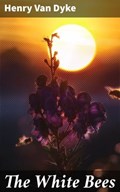In "The White Bees," Henry Van Dyke offers readers a luminous journey through nature and spirituality, weaving vivid imagery with introspective prose. Set against the backdrop of serene landscapes, the narrative explores themes of innocence, beauty, and the profound connections between human beings and the natural world. Van Dyke'Äôs lyrical style is infused with a sense of wonder, reflecting the ideals of American transcendentalism, and echoes the influences of his contemporaries such as Emerson and Thoreau. The book invites readers into a contemplative state, urging them to appreciate the subtle wonders of life and the fragile ecosystem surrounding them. Henry Van Dyke, a prominent American writer and clergyman, was known for his deep appreciation of literature and the splendor of the natural world. His diverse background as a pastor, educator, and poet enriched his worldview, compelling him to explore the intersections of faith and nature in his writing. "The White Bees" serves as a testament to his belief in the transformative power of beauty and simplicity, shaped by his own idyllic experiences in nature. This book is highly recommended for those seeking a reflective escape into a world where nature and spirituality intertwine. Readers who appreciate poetic language and philosophical inquiry will find themselves captivated by Van Dyke's enchanting prose, making "The White Bees" a timeless classic for lovers of literature and nature alike.

